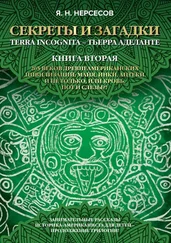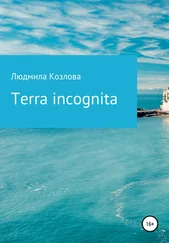Ah, what hundreds of volumes we might fill with what we don’t know!
Jules Verne, Autour de la Lune [ Round the Moon ], 1869
A Comprehensive History Implies the Study of Ignorance
The first duty of all historians is to identify lacunae and to inventory and measure gaps in the knowledge of earlier generations and, by the same token, discrepancies in the social reach of what facts were known. We cannot fully understand our forebears without some idea of what they did not know, either because no one knew it, or because they in particular were not in a position to know it. This method can be applied to a wide range of fields: think, for instance, of anatomical knowledge, diseases and treatments. It would be an impossibly vast undertaking to write a fully comprehensive history of everything humans have not known and to approach the field in overall terms. To map out what our ancestors did not know, the historian must focus on a single field of endeavour and probe its blind spots and lacunae.
This book focuses on our planet, exploring its mysteries past and present, and the intensity and eventual decline of the modes of terror and wonder it aroused. This means interpreting the history of science and discoveries by studying how the gaps in our ancestors’ knowledge were filled, and consequently how the imaginaries and dreams they sparked faded away.
In studying discrepancies in the social reach of knowledge, it is important to draw a clear distinction between various types of scientific unknowns. Some things could only be dreamed of, not explored, such as the seabed and the polar ice caps. Others were observable but inexplicable, such as earthquakes, volcanoes and dry fogs. Yet others were resolved by forms of exploration that slowly restricted the boundaries of ignorance, such as the rise of mountaineering and expeditions to the unmapped hearts of certain continents.
To make my point perfectly clear, let me turn to Jean Baechler. He has argued that in small prehistoric communities, everyone knew the same things. In the village where I grew up, set in the rolling Normandy countryside, most of the country folk who gathered in the local cafés after Sunday mass could easily join in conversation, since they all knew more or less the same things: livestock farming, traditional crafts, what they had learned at primary school and, in the case of the older men, their wartime experiences. Apart from the priest, the doctor, the primary school teacher, the vet and the notary, they all had the same gaps in their knowledge – and even then, an electrician and car mechanic had recently set up shop, further stratifying the local knowledge base to a small extent.
When we read Balzac, Goethe, Dickens and Stendhal, we have to make an effort to understand and imagine the way they thought about our planet, which they saw as a mysterious place, all the more frightening for being beyond comprehension. The depictions of the earth they would have been familiar with were fundamentally shaped by the vestiges of past cultural beliefs; those with little or no schooling must have found it truly terrifying. From the eighteenth century on, knowledge had become increasingly stratified between those described as ‘scholars’ – the term ‘scientist’ had not yet been coined – and the vast majority of the population in the West. In the same vein, the history of the stratification of the thirst for knowledge is a fascinating question: this is what philosophers, following Augustine, called libido sciendi . It is what makes Flaubert’s Bouvard et Pécuchet such a piquant read: the novel ironically foregrounds the depth of ignorance and intense thirst for unattainable knowledge that must have tormented many a mid-nineteenth-century clerk.
Identifying gaps in the knowledge of our forebears means tracking the pace of discoveries and public access to knowledge – in other words, how scientific discoveries about the earth, geology, vulcanology, glaciology, meteorology and oceanography were transmitted down the social scale. It also means studying how the earth was illustrated, the depth of its history and geography, the gradual process of filling in the blanks, and attempts to discover the secrets of the polar regions. It is very difficult to close our own minds to the images of our planet that we carry within us. That is the aim, and the challenge, of this book.
The entire period under study was characterized by the triumph, or at least obstinate survival, of localism and restricted horizons, both literal and metaphorical, contradicting our modern perceptions of the vastness of space. This is particularly clear in the history of the perception of meteorological phenomena, recorded on a small local scale from the sixteenth century and gradually expanding to the discovery of the jet streams in the mid-twentieth century.
As I was writing this history of the developing stratification of ignorance, it came as some surprise to me to realize that such gaps were not always considered as shortcomings liable to mar human happiness. The advances of the Enlightenment and the progressive slaking of the thirst for knowledge, libido sciendi , had their fair share of detractors, just as the Enlightenment had its own dark side. Take, for instance, Jacques-Henri Bernardin de Saint-Pierre’s shrewd essay in praise of ignorance in his 1784 Études de la nature [ Studies of Nature ]. He argued that ignorance stimulated the imagination and filled the world with wonders: ‘Thanks to my ignorance, I can indulge the instinct of my soul.’ On his solitary rambles, he claimed to enjoy the countryside more when he had no knowledge of the chatelains who owed their reputations in large part to their châteaux: ‘The ignorance of the scenery is of greater advantage to me than an acquaintance with it. I have no occasion to know that a forest belongs to the abbey, or that duchy, in order to think it majestic. Its aged trees, its deep glades, its silent solitudes, are enough for me.’ Contrary to the beliefs of the apostles of the Enlightenment, ‘Night gives us a much higher idea of infinity than all the brilliancy of day.’ 1
Secondly, Bernardin de Saint-Pierre, inspired by the natural theology that is a constant feature of this book, wrote that ignorance encourages our trust in God: ‘Thanks to my ignorance, I can indulge the instinct of my soul’; ‘For one pleasure which science confers and destroys in conferring, ignorance bestows on us a thousand, which are much more agreeable.’ It also soothes our fears: ‘How many evils ignorance conceals from us.’ Paradoxically, it is ‘the inexhaustible source of our pleasures’. 2The same inclination towards the obscure and unknown is shared by several Romantic literary travellers, guided more in their appreciation of the world by the authors of classical Antiquity than by what contemporary science might have been able to teach them.
Researching ignorance inevitably throws up a number of difficulties. The first is our modern depictions of a planet that we consider our home. The degree of responsibility we feel towards it was barely beginning to emerge in the nineteenth century. The increasing number of threats to the planet in the Anthropocene era are now understood to be a human, rather than divine, apocalypse. This process, which distances us from the understandings of the eighteenth and nineteenth centuries, has progressed at a much faster pace since the mid-twentieth century. It is likely that in times past, no single individual could ever accumulate so much knowledge in the span of their lifetime. I personally feel this very strongly, though I am no scientific expert, and I call on my contemporaries as witnesses.
On Monday, 1 July 1946, I was a boarder at a Catholic middle school in the small Normandy town of Flers-de-l’Orne. The headmaster, a priest, seemed very elderly to me. He had a degree in philosophy, and had in fact, I later found out, studied under Émile Durkheim in the early years of the century. That day, he came into our classroom and told us that classes were to be suspended that afternoon: we were to go to chapel to pray for the earth ( sic ), because the Americans were going to drop an atomic bomb more powerful than the ones that had destroyed Hiroshima and Nagasaki. People everywhere were asking whether this horrifying experiment would not annihilate or lay waste to the earth. We lined up, walked to the chapel and began to pray. No disaster ensued.
Читать дальше
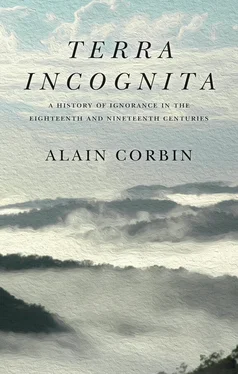


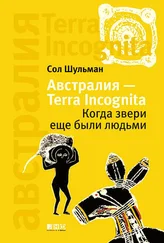

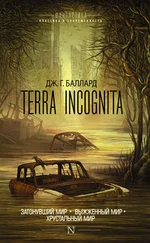
![Сергей Спящий - Время terra incognita [СИ]](/books/395082/sergej-spyachij-vremya-terra-incognita-si-thumb.webp)

